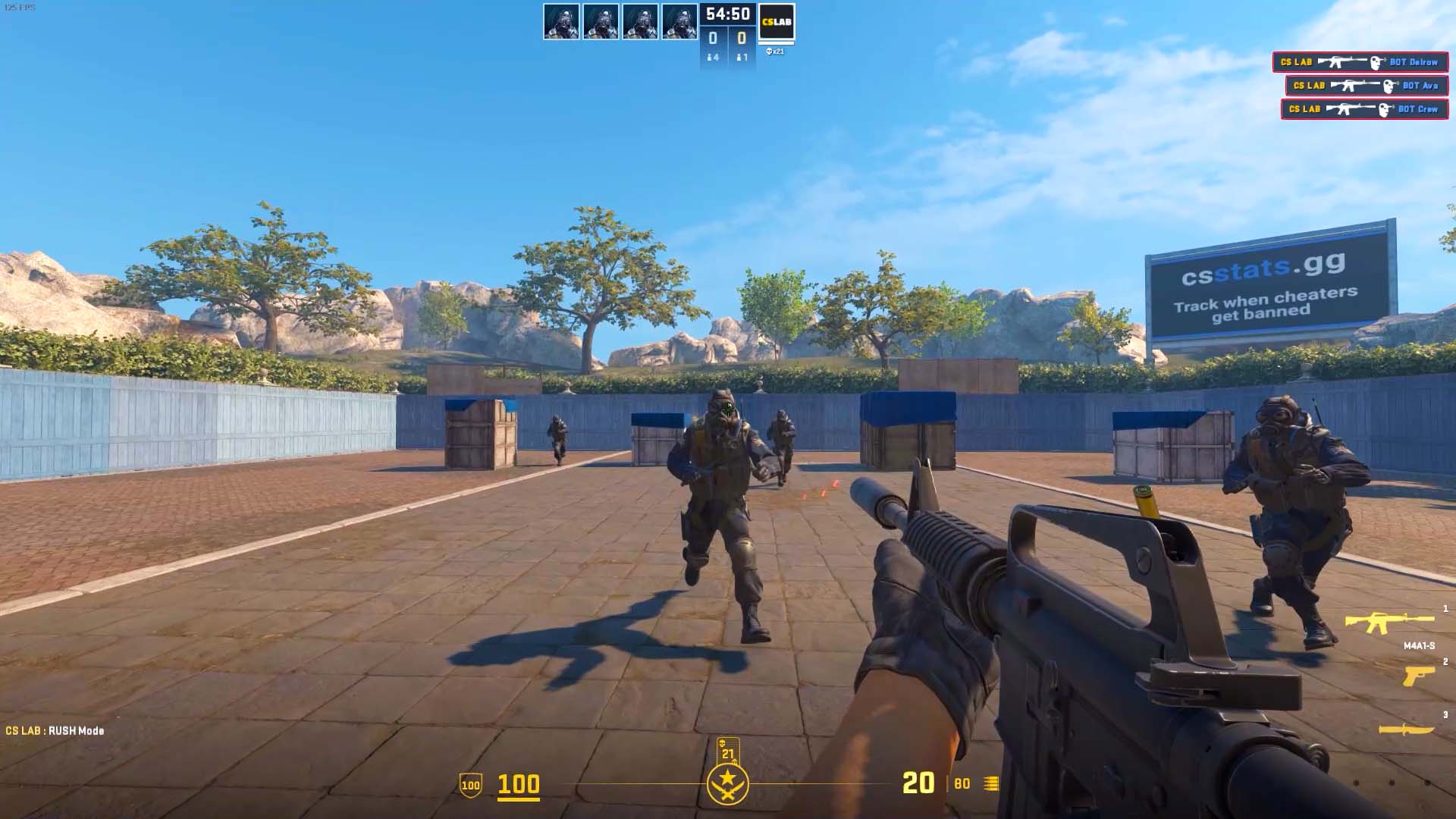How to Improve Your Aim Faster with science
An interesting study demonstrated significant improvements in gaming performance and cognitive skills. The goal of the study was to explore whether personalized adaptive training in Counter-Strike improves in-game performance and cognitive skills more effectively than standard training methods.
Study Overview
To better understand the results, let’s break down how this fascinating study was set up.
A total of 21 players were selected for this experiment. They were divided into two groups to try two different training methods.
Both groups practiced deathmatch against bots for 2 hours per day, including a warm-up and a rest period. The total training period lasted for 3 weeks.
The first group, known as the adaptive training group, had their difficulty dynamically adjusted based on performance. As players improved or struggled, the game responded by increasing or decreasing the difficulty of the bots, providing a customized training experience tailored to each player’s skill level. Almost 100 combinations of in-game skills were included in adjusting the difficulty.
The second group, known as the standard training group, chose their own difficulty level (easy, medium, or hard) at the start of the training. The difficulty remained the same throughout the entire training period, representing a more traditional and static form of training.
To add complexity and variety, a team or map was not allowed to be chosen more than twice consecutively.
Results
Now, let’s discuss the exciting results.
Players who underwent personalized adaptive training showed greater in-game performance compared to the standard group. They exhibited a significant increase in their kill-to-death ratio over time, faster completion times in various aim tasks, and demonstrated higher accuracy with fewer missed targets.
The study also examined how the training impacted aspects like reaction times, attention, visual searching skills, planning, flexibility, and decision-making.
The adaptive group showed noticeable improvements in these cognitive skills. They became quicker at reacting, and better at paying attention to details, and their overall decision-making skills improved.
While the standard group also showed improvements in these cognitive areas, the adaptive group had a bit more of an edge, likely due to the more challenging and personalized nature of their training.
The most exciting part is that these cognitive benefits were maintained up to 3 months after the study ended, in both experimental groups.
Conclusion
The conclusion is clear: players using the adaptive version of the game progressed significantly faster in terms of in-game performance. Dynamically adjusting the difficulty based on individual performance leads to greater improvements compared to traditional training methods.
If you want to improve faster, you should find a way to customize and adjust your training to fit your performance level. In future videos, we will dive deeper into the science of how you can challenge yourself in the most optimal way.





